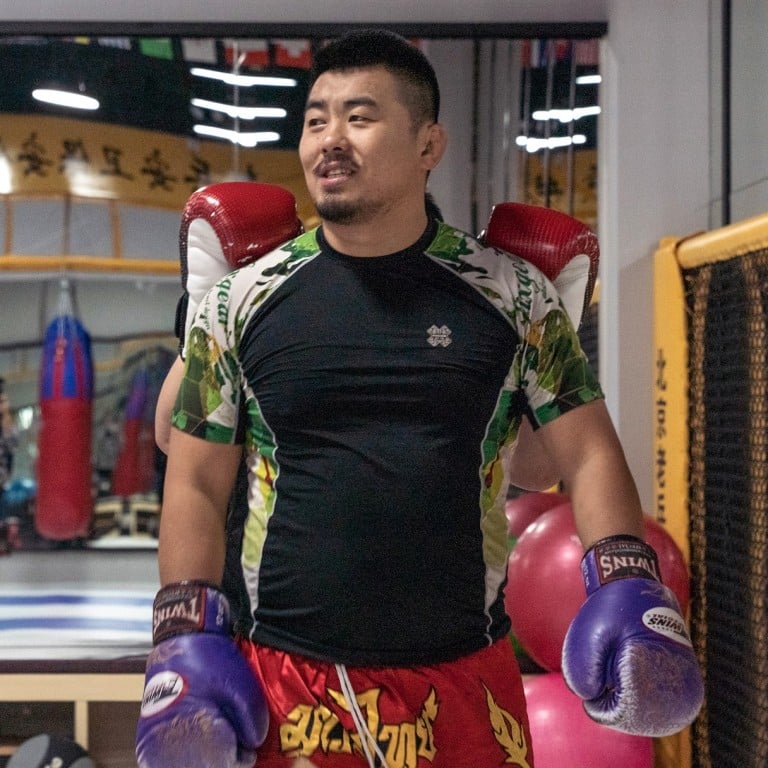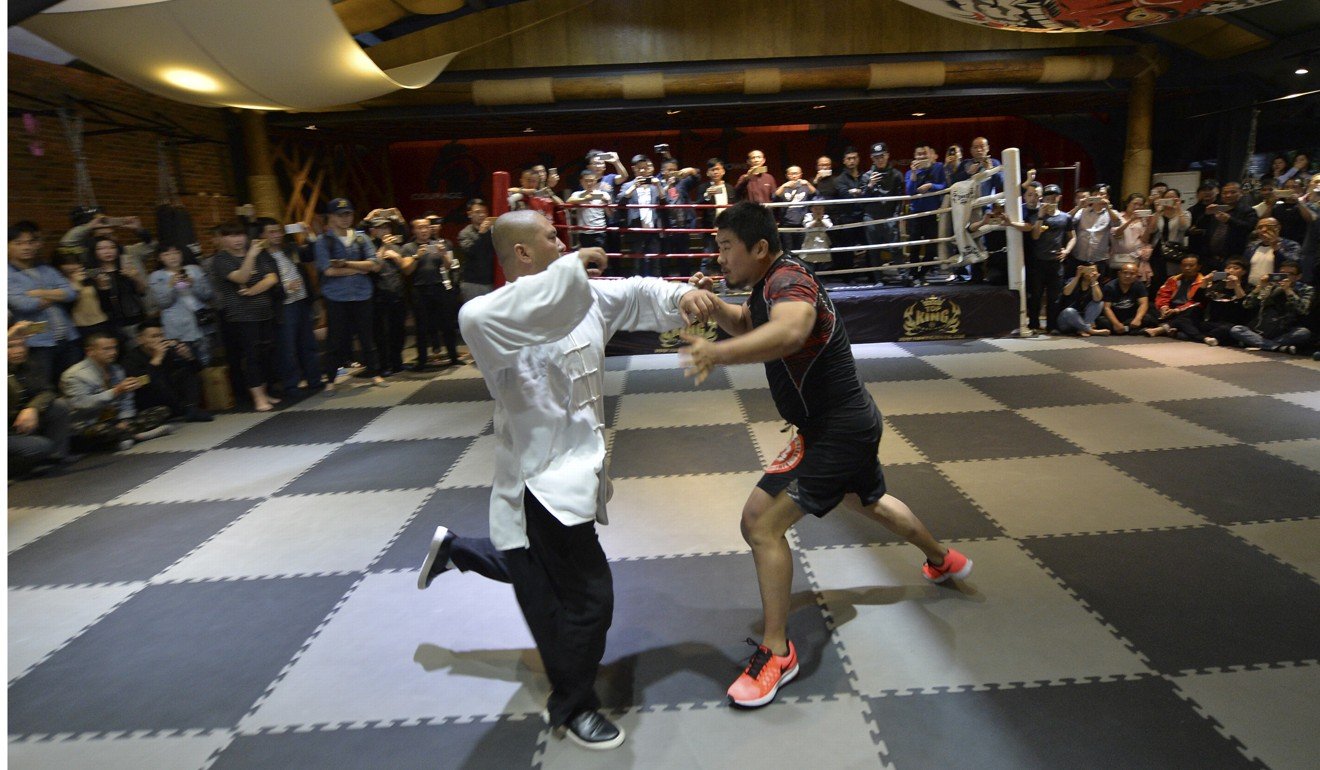
Chinese mixed martial arts fighter Xu Xiaodong rose to fame exposing fake kung fu – now he just wants to ‘survive’
- When China’s most controversial fighter headed to Bangkok for the biggest match of his career, his first concern was whether he would be allowed on the flight
- Back in Beijing, he has faced visits from unnamed officials and repeated suspensions of his social media accounts
This article was written by Qin Chen and Arman Dzidzovic, and originally appeared in Inkstone, a daily digest of six China-focused stories.
Then he stopped. He had just won the biggest fight of his career, but he did not want to be seen celebrating. “If I look too happy, there will be more people coming after me,” Xu said after the fight.
The 41-year-old said that a few weeks earlier he was worried he might not be allowed to leave Beijing.
“It would be hard for other athletes to imagine what I’m going through,” he said, a week before he was due to travel to Bangkok.
“My fight organisers are withholding all promotion. They’re afraid that I won’t be able to leave China. I honestly can’t believe I have sunk this low.”
Xu’s rise to infamy started in 2017, when he beat a tai chi master in 20 seconds in a fight that became a viral video. He gained instant fame but his account on Weibo, China’s microblogging platform, was shut down a few days later as the state-run Chinese Wushu Association berated the fight, saying it “violated the spirit of martial arts” and was “potentially illegal”.
Undeterred, he later took down three other kung fu masters in high-profile matches streamed online.
In May 2019, he was temporarily barred by a Chinese court from travelling on high-speed trains or booking flights and hotels because he refused to apologise to Chen Xiaowang, a tai chi master, after losing a defamation case to Chen.

Around that time, nearly all of Xu’s social media accounts in China were suspended without explanation. But he decided to double down by using a virtual private network to open YouTube and Twitter accounts.
“I just did not give a damn any more … I know it’s illegal to hop over the censorship wall, but I also know they can’t block me once I’m on YouTube,” Xu said at a Beijing gym in November. “As long as I’m alive, I will keep live-streaming on YouTube.”
Soon after that live stream, Xu was awakened by knocking on the door of his Beijing flat. His young daughter opened the door to two uniformed Chinese officials.
Xu, who refused to give more detail, used a vague Chinese term, the “related departments,” to identify the officials. “They can go after me however they want. But by coming to my home, they were threatening me through my family,” he said, months after the visit.
So when Xu was allowed to pass through immigration at Beijing’s Daxing International Airport for his Bangkok fight, he was relieved.
He was on his way to his first competition outside China. For Xu, it was his first opportunity to prove his critics wrong.
Many had claimed he won fame by beating up kung fu masters with little professional fighting experience, or that some were smaller in size than him.

That was why he decided to take on 35-year-old Nagashima, famous for dressing up in anime cosplay on his way into the ring and a K-1 kick-boxing winner with three back-to-back knockouts in 2010 – a proper professional.
Speaking to some 240,000 viewers on his YouTube live stream after the fight, Xu said he was just thankful the fight had happened at all, saying the organisers had faced pressure from Chinese authorities to cancel it.
But a day after his win in Bangkok, it was back to reality – his account on Weibo was suspended once again. It was his 12th account, which he had opened just six days before. Every time one of his Chinese social media accounts gets shut down, Xu sets up a new one. He is now on his 14th.
Recently, he suffered a new blow. On January 2, his business account on Tencent-owned WeChat, through which he used to receive donations from his fans on YouTube, was suspended. It was one of his main sources of income, besides teaching mixed martial arts in gyms across Beijing.
Xu said he felt the suspension was “treacherous” and potentially threatened his ability to make a living. And even though he was allowed to travel to Thailand, he worries he may be banned from travelling abroad in the future.
The constant worry and paranoia has diminished the once-boastful, bombastic Xu, who said he just wants “some basic rights” in 2020, like the means to earn a living and the freedom to travel.
“My new year resolution for the year is simple: to survive,” he said.

